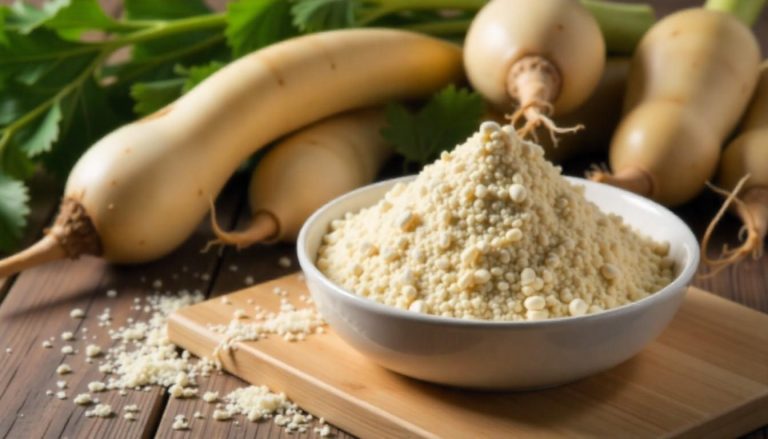Did you know that your pituitary gland, often called the “master gland,” plays a crucial role in regulating hormones that affect everything from growth to metabolism? If you’ve ever felt a bit off, it might be worth considering how this tiny gland is functioning. While many focus on the thyroid or adrenal glands, the pituitary can often be overlooked. But fear not! There are natural ways to support its health, including the use of herbs. Let’s dive into five powerful herbs that can help keep your pituitary gland in top shape.
Contents
Understanding the Pituitary Gland
Before we get to the herbs, it’s important to understand what the pituitary gland does. Located at the base of your brain, it’s responsible for producing hormones that control various bodily functions, including:
- Growth Hormone (GH): Essential for growth and muscle development.
- Thyroid-Stimulating Hormone (TSH): Regulates metabolism.
- Adrenocorticotropic Hormone (ACTH): Influences cortisol production from the adrenal glands.
When the pituitary isn’t functioning properly, it can lead to a host of issues, including fatigue, weight gain, or even growth disorders. That’s why supporting its health is so vital.
1. Ashwagandha
What It Is
Ashwagandha, or Withania somnifera, is an adaptogenic herb that has been used in Ayurvedic medicine for centuries. Known for its stress-relief properties, it helps the body adapt to stress and maintain hormonal balance.
Benefits for the Pituitary
Research suggests that ashwagandha may enhance pituitary function by influencing the hypothalamic-pituitary-adrenal (HPA) axis. This connection helps regulate cortisol levels, which can indirectly support pituitary health.
Pros and Cons
Pros:
- May reduce stress and anxiety.
- Can improve energy levels.
- Supports overall hormonal balance.
Cons:
- Some individuals may experience digestive issues.
- Pregnant or breastfeeding women should consult a healthcare provider before use.
Personal Commentary
I’ve noticed that when I incorporate ashwagandha into my routine, I feel more balanced and less overwhelmed. It’s like my body is better equipped to handle whatever life throws at me.
2. Maca Root
What It Is
Maca root (Lepidium meyenii) is a Peruvian herb known for its energizing properties. Often touted as a superfood, maca is rich in vitamins and minerals that can support various bodily functions.
Benefits for the Pituitary
Maca has been shown to help balance hormones, which can positively impact pituitary function. It may also enhance libido and improve fertility, making it a popular choice for those looking to optimize their reproductive health.
Pros and Cons
Pros:
- Boosts energy and stamina.
- Can improve mood and reduce feelings of anxiety.
- Supports hormonal balance.
Cons:
- Some may find it has a strong taste.
- It can cause digestive discomfort in higher doses.
Personal Experience
I’ve added maca to my smoothies, and honestly, it gives me a nice energy boost without the jitters. It’s a great way to kickstart my day!
3. Holy Basil
What It Is
Holy basil, or Ocimum sanctum, also known as tulsi, is revered in traditional medicine for its adaptogenic properties. This herb is known for promoting mental clarity and emotional balance.
Benefits for the Pituitary
Holy basil may help regulate cortisol levels and support the body’s response to stress. By doing so, it can indirectly promote a healthier pituitary function, allowing it to regulate other hormones more effectively.
Pros and Cons
Pros:
- Helps reduce stress and anxiety.
- May improve overall mood.
- Supports immune function.
Cons:
- Can interact with certain medications.
- Some people might experience mild digestive issues.
A Quick Note
I’ve found that sipping on holy basil tea in the evenings helps me unwind. It’s a soothing ritual that also supports my hormonal health.
4. Ginseng
What It Is
Ginseng, particularly Panax ginseng, is a well-known herb in traditional Chinese medicine. It’s celebrated for its energy-boosting and adaptogenic properties.
Benefits for the Pituitary
Research indicates that ginseng can help improve pituitary function by enhancing the release of various hormones, including those related to stress response and metabolism. This can lead to better overall hormonal balance.
Pros and Cons
Pros:
- Increases energy and stamina.
- Supports mental clarity and focus.
- May enhance immune function.
Cons:
- Some individuals may experience insomnia if taken late in the day.
- Can interact with certain medications, including blood thinners.
Personal Thoughts
Ginseng is a staple in my herbal arsenal. I find that it helps me stay sharp and focused, especially during those long work days.
5. Licorice Root
What It Is
Licorice root (Glycyrrhiza glabra) is often used in herbal medicine for its sweet flavor and numerous health benefits. It’s particularly known for its anti-inflammatory properties.
Benefits for the Pituitary
Licorice root can support adrenal function, which is closely tied to the pituitary gland. By promoting adrenal health, it may help balance cortisol levels and support the overall hormonal landscape.
Pros and Cons
Pros:
- May help soothe digestive issues.
- Supports adrenal health.
- Can improve mood and energy levels.
Cons:
- Excessive consumption can lead to high blood pressure.
- Not recommended for pregnant women or those with certain health conditions.
Final Thoughts
I enjoy licorice tea for its sweet flavor, but I always keep an eye on how much I consume. It’s all about balance!
FAQs
1. Can herbs really support pituitary gland health?
Absolutely! Certain herbs can help balance hormones and support the overall function of the pituitary gland. However, individual responses may vary.
2. How long does it take to see results from these herbs?
It can vary, but many people notice changes within a few weeks of consistent use. Patience is key, as herbal remedies often work gradually.
3. Are there any side effects from using these herbs?
While most of these herbs are safe for general use, some individuals may experience side effects, especially if taken in excessive amounts. Always consult a healthcare provider if you have concerns.
4. Can I take these herbs alongside other medications?
Some herbs can interact with medications, so it’s essential to consult a healthcare provider before combining them with any prescription drugs.
Conclusion
Supporting your pituitary gland health doesn’t have to be complicated or expensive. By incorporating these five herbs—ashwagandha, maca root, holy basil, ginseng, and licorice root—into your routine, you can help promote hormonal balance and overall well-being. Remember, though, that individual responses can vary, and it’s always a good idea to consult with a healthcare provider before making significant changes to your health routine.
This article is for educational purposes only and is not a substitute for professional medical advice. Always consult a qualified healthcare provider before making changes to your health routine.
References
-
Maji, A., & Shukla, S. (2020). Role of Ashwagandha in Stress Management and Hormonal Balance. Journal of Ayurveda and Integrative Medicine. https://www.ncbi.nlm.nih.gov/pmc/articles/PMC7331610/
-
Stojanovic, J., & Milovanovic, D. (2019). Maca Root and Its Impact on Hormonal Health. Nutrients. https://www.ncbi.nlm.nih.gov/pmc/articles/PMC6838282/
-
Choudhary, D., & Ghosh, S. (2017). The Therapeutic Potential of Holy Basil (Tulsi) in Stress Management. Journal of Ethnopharmacology. https://www.sciencedirect.com/science/article/pii/S0378874117303063
-
Reay, J.L., & Kennedy, D.O. (2008). Ginseng: A Review of Its Potential Effects on Health. Nutrition Reviews. https://academic.oup.com/nutritionreviews/article/66/5/246/1847385
-
Toh, M.P., & Wong, K.H. (2019). Licorice Root: An Overview of Its Health Benefits. Journal of Herbal Medicine. https://www.sciencedirect.com/science/article/pii/S2210784319300120
Get Your FREE Natural Health Guide!
Subscribe now and receive our exclusive ebook packed with natural health tips, practical wellness advice, and easy lifestyle changes, delivered straight to your inbox.






